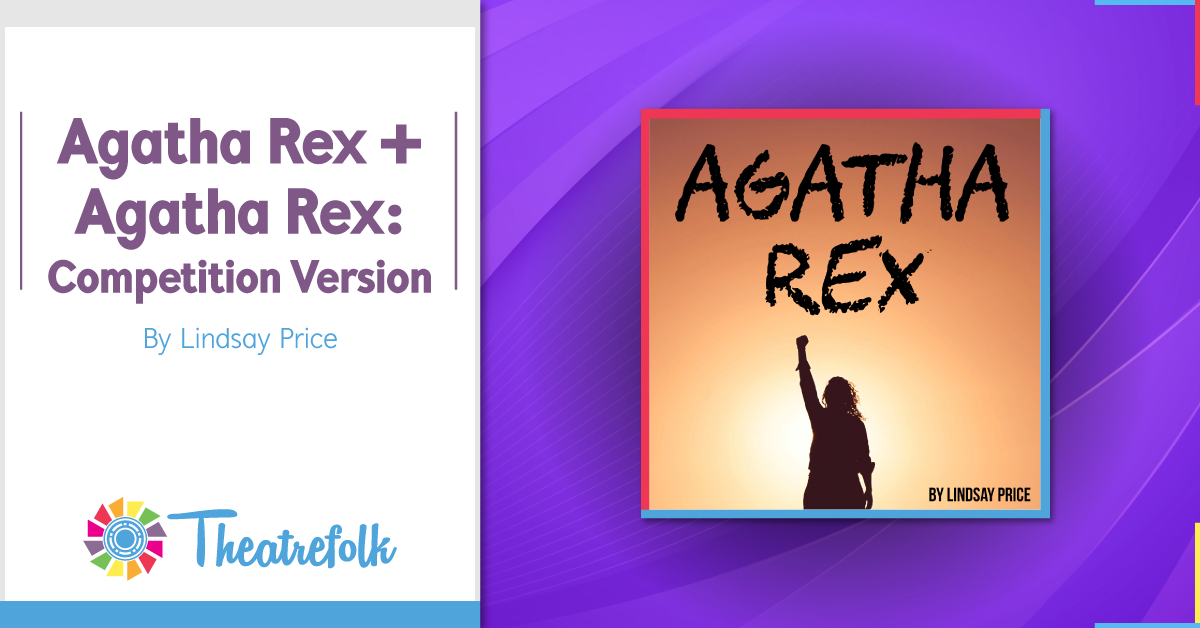Theatrefolk Featured Play - Agatha Rex
Welcome to our Featured Play Spotlight. Agatha Rex by Lindsay Price is a modern high school adaptation of Antigone, transforming the Greek chorus into a dynamic ensemble opportunity. Available in a competition-length version too!
Possible expulsion, expulsion, expulsion.
Agatha is a girl who stands up for her beliefs, regardless of the consequences. As student council president at Thebes High, she vigorously defends a student who is unfairly punished. Based on her actions, she could be expelled and lose an important scholarship.
Set in a modern-day high school, the play translates the original Greek chorus into a fantastic ensemble opportunity.
Let's hear from the author!
1. Why did you write this play?
I love adaptations, and Antigone is an epic play - adapting it is always a fun challenge. The original story translated seamlessly to the high school stage: Antigone defies the king to honor her brother, while Agatha defies the principal to support hers.
Both Agatha and Antigone stand up for what they believe in, no matter the consequences. In this modern version, Agatha isn’t faced with a life-or-death choice—apologize or die—but her actions will still change her life. She risks losing everything she’s worked for, all for a brother who may not even be worth the sacrifice.
1b. Why did you also write a competition length version?
Agatha Rex is one of my more popular plays for production and for classroom study because of its link to Ancient Greek Theatre. I've had many teachers ask for a competition length version of this play and it's been great to be able to adapt my adaptation!
2. Describe the theme in one or two sentences?
Do you stand up for your beliefs, regardless of the consequences? How do you define right vs wrong?
3. What's the most important visual for you in this play?
The "Greek Chorus" of students who observe the action and comment on it.
4. If you could give one piece of advice for those producing the play, what would it be?
Agatha Rex is a great example of an ensemble that has a lot to do and can't stand around being wall paper. The Greek Chorus in the original is transformed into an ensemble of high school students. Frankly, it's the toughest part in the play – they set the scene, they set up the world of the play and its characters.
The ensemble acts as foils for Agatha (both encouraging her to act and then backing away when she asks for their help) they are the atmosphere of the play. They act as the voice of the student body. And they have to do it in unison.
5. Why is this play great for student performers?
This play has a lot to offer from offering a modern look into an Ancient Greek play, to the ensemble work, to the strong character development, to the discussion of the themes. How do you define right from wrong? What would you do in a similar situation? Should someone be punished less harshly because they are a good student? What are your thoughts on personal responsibility?
6. Who is your favourite character in the play? OR Which character would you be in this play?
Eunice, the head hall monitor, is my favourite character! I would love to play her.
7. What is your favourite line in the play?
Any time the chorus called Dr Creon "Cromagnon."



